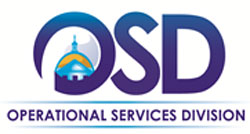|
|
|
State Contract List
Eligibility Guidelines
All Executive departments are required to use Statewide Contracts for their purchases. Departments can purchase using a Statewide Contract without having to conduct their own competitive procurement or execute contract documents.
While Executive departments are required to use Statewide Contracts, many other public and quasi-public entities are eligible, though not required, to use the Commonwealth's Statewide Contracts. These eligible entities include, but are not limited to:
|

Massachusetts Operational Services Division
|
|
- Cities, towns, districts, counties and other political subdivisions
- Executive, Legislative and Judicial Branches, including all departments and elected offices therein
- Independent public authorities, commissions, and quasi-public agencies
- Local public libraries, public school districts, and charter schools
- Public hospitals owned by the Commonwealth
- Public institutions of higher education
- Public purchasing cooperatives
- Non-profit, UFR-certified organizations that are doing business with the Commonwealth
- Other states and territories with no prior approval by the State Purchasing Agent required
- Other entities when designated in writing by the State Purchasing Agent
Other eligible entities, such as cities and towns, may need to execute the appropriate contract documents; however, they are not required to conduct a separate competitive procurement since all Statewide Contracts are the result of a competitive process.
Benefits to Eligible Entities Using Statewide Contracts
Statewide Contracts are an easy way to obtain several benefits for your organization by leveraging the Commonwealth's central purchasing agency including its:
- Solicitation Process - Why reinvent the wheel? Save time by using the state's competitive procurements crafted by a professional contract manager and representatives from public entities who have expertise and experience with the products/services sought.
- Buying Power - Save money by using contracts that wield the state's purchase of over $1.0 billion annually in goods and services to run state agencies and programs. Aggregate-purchase discounts and the right to negotiate prices downward are two benefits of the state's purchasing power. By adding your purchases to the state's contract, the state gains even more leverage to negotiate the best value available.
- Contracting Expertise - We all know that cheapest is not always best. Better terms and conditions, delivery guarantees, top order-fulfillment priority, performance measures and mandatory reporting are just some of the features the state is able to include in its contracts.
- Vendor Management and Oversight - Why hassle with vendors? When issues arise, the state contract managers are available to assist in resolving any contract problems. Our mission is to resolve problems quickly and ensure the vendor meets the conditions of the contract.
|
|


